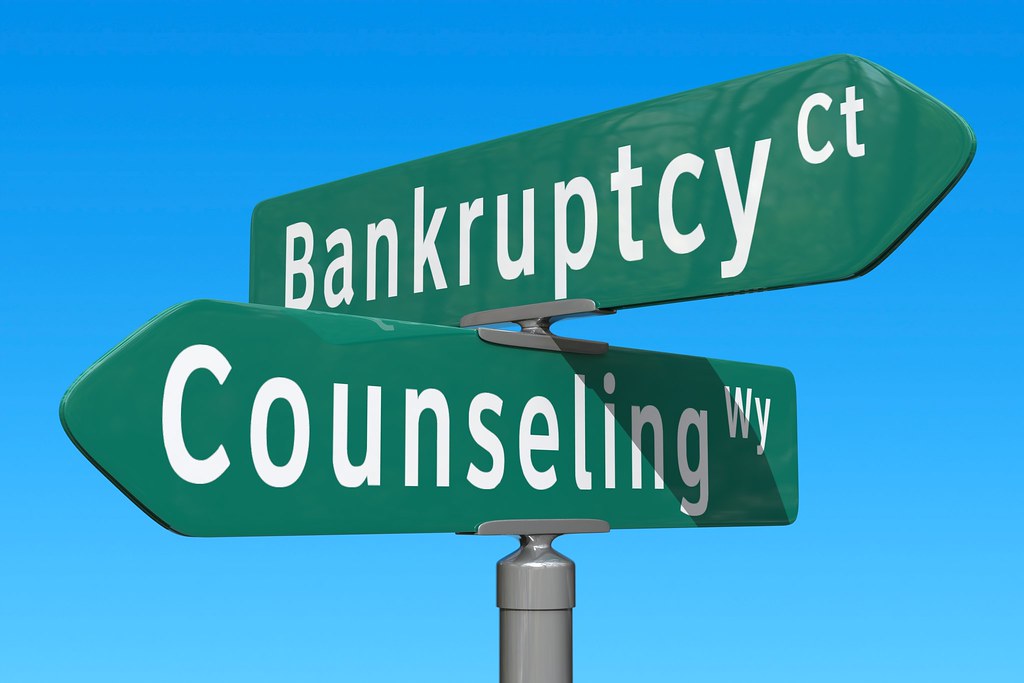
American bankruptcy laws exist to help people in trying times escape insolvency and regain their financial footing. It can seem like financial disaster looms behind every dark cloud in these uncertain times, destroying our nest eggs along with our peace of mind. Whether its surprise medical bills, a family illness, unforeseen job loss or any other problem can put you and your family in a deep financial hole. As the COVID-19 pandemic rages with no help in sight, things can seem bleak for those in need. Bankruptcy laws shield Americans from their debtors long enough to get back on financial track and get their feet back underneath them again.
The bankruptcy experts at Allen Stewart P.C. have years of experience helping Americans with their financial woes, guiding them through the bankruptcy process and out the other side. They will examine your circumstances and work with you on a plan tailored to meet your specific needs. The first and best step you can take to get back on the right track is reaching out to Allen Stewart P.C. today, because the longer you wait the more difficult that path back to financial security will be. The sooner you start, the better your chances are of a favorable income.
There are challenges in bankruptcy that you should be aware of when making the choice to file. Filing for bankruptcy will have a negative effect on your credit score for seven years. If your credit score was already in the tank by the time you file bankruptcy it likely won’t have that much of an effect. If you had otherwise good credit, however, you’ll likely see a sharp drop in your score. While this could present challenges in the short term, it can be an overall positive. The sooner you file bankruptcy the sooner you can get your financial house in order, the sooner you start paying off debts and making timely payments — improving your overall financial health.
Some clients report issues getting a car loan or mortgage after filing bankruptcy. Potential creditors will see the recent bankruptcy and see you as a credit risk. Bankruptcy clients who do qualify for such loans often face higher interest rates and loan fees. However, attaining these loans isn’t impossible. Lenders look positively on consumers who take steps toward rebuilding their credit and getting their financial feet back under them. Making account payments on time, paying off debts and even acquiring a secured credit card can help rebuild a positive credit history and make you look better to lenders. Secured credit cards are backed by a deposit defining the card’s borrowing limit and can help you rebuild your credit score. You could also seek a co-signed credit card, if you have a trusted friend of family member with good credit willing to be your co-signer.
One potential option is looking for credit unions or local banks who look at your entire financial picture not just your credit score. If doing so shows a lender you have turned your circumstances around and you have adequate income, they may lend to you easier than institutions who care only about credit scores.
One thing to keep in mind is when you complete bankruptcy proceedings, you cannot go through bankruptcy again for several years. Specifically, after you complete a Chapter 7 bankruptcy, you cannot undergo another Chapter 7 bankruptcy for eight years and you cannot undergo Chapter 13 bankruptcy for four years. Likewise, if you complete a Chapter 13 bankruptcy, you cannot file for Chapter 7 bankruptcy for six years and another Chapter 13 discharge for two years. This can prove problematic for those who don’t solve the core cause of their financial issues by the time their first bankruptcy process finishes.
Many bankruptcy clients express concern they will lose their homes and vehicles if they file for bankruptcy. Luckily Texas bankruptcy laws offer more generous exemptions than laws in many other states. The state’s homestead exemption is unlimited aside from acreage limits based on the property’s location, while federal laws only exempt $23,675 of equity in a client’s “principal place of residence.”

Texas debtors can keep their home thanks to provisions in the state laws. If they keep paying their mortgage and tax payments on time, Texas bankruptcy clients can keep their homes. Texas bankruptcy laws also exempt the land upon which that home sites, up to ten acres within a city and 100-200 acres in rural areas. The only catch is the resident must live in Texas for at least 40 months (a little under three and a half years) before claiming a homestead exemption in their bankruptcy filings.
Texas clients’ vehicles are safe as well, as the state’s bankruptcy laws exempt the entire value of one owned motor vehicle per licensed household member. Meanwhile federal laws only exempt $3,775 worth of value.
Texas exemptions extend to personal property as well, exempting up to $100,000 worth of personal property for families and $50,000 for single adults. This includes clothing, food, animals, some jewelry and up to two firearms.
Bankruptcy represents a fresh start for Texas debtors. Once your bankruptcy concludes and you’ve paid off all your debts, you’ll soon qualify for new credit lines. Many bankruptcy clients start receiving credit offers shortly after completing bankruptcy. Hopefully by the time you complete the bankruptcy you’ve not only paid off all your debts but also resolved the core cause of those debts, leaving you better suited to handle credit, bills and financial obligations going forward. Responsible credit use, diligent debt repayment and other lessons learned throughout bankruptcy will help you rebuild credit and make you a better borrower in the future.
Bankruptcy isn’t easy and presents its own challenged, but the rewards at the end are well worth it. Bankruptcy can be a fresh start and a bright financial future after a rough patch. The qualified Dallas bankruptcy specialists at Allen Stewart P.C. will help guide you through this period of your life and on to better days. The longer you wait the harder getting to that future will be. Contact the attorneys of Allen Stewart P.C. today and learn your options.
